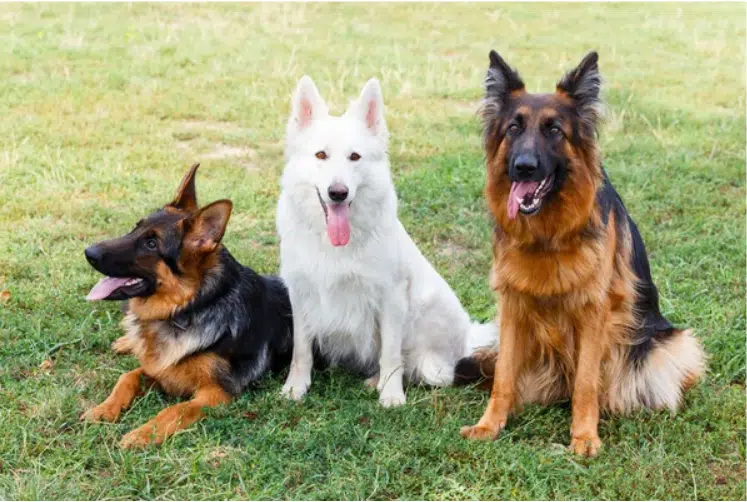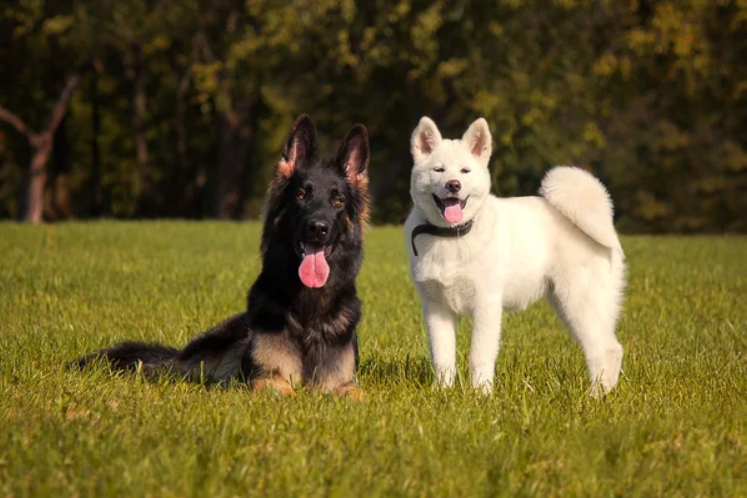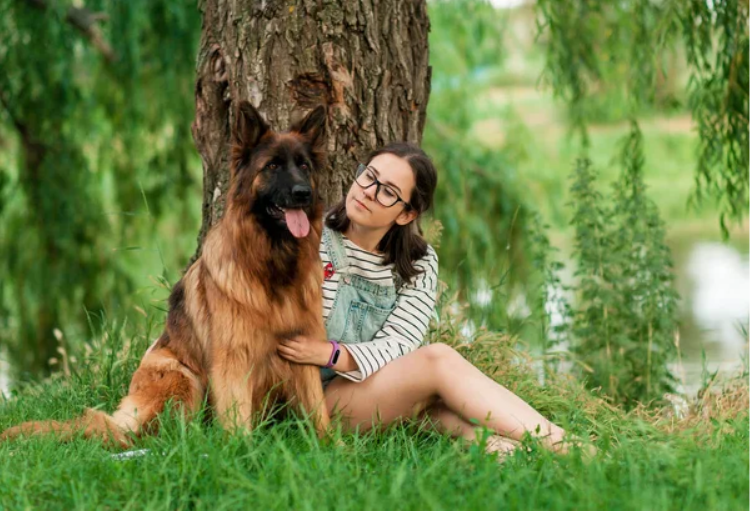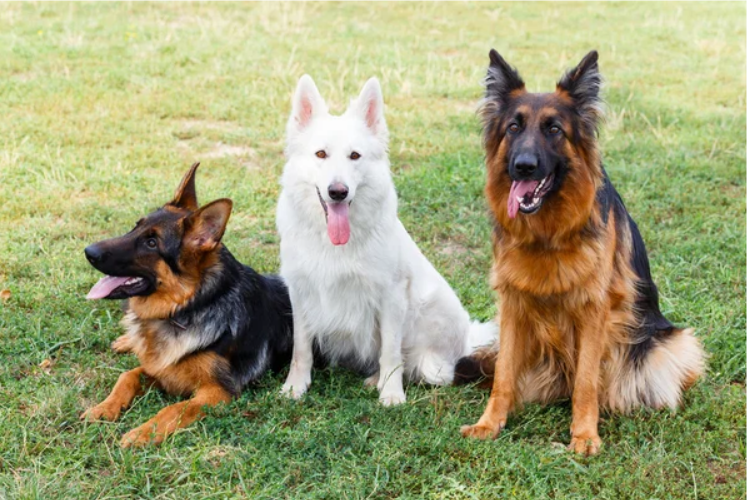
As we seek to protect our families and homes, many are turning to canine companions for security. But what’s the difference between protection dogs and guard dogs, and can they coexist? Understanding these distinctions is key when considering family protection dogs for sale. Let’s dive into how these specialized dogs can work together to keep you and your loved ones safe.
Understanding the Difference: Guard Dog vs Protection Dog
When it comes to canine security, the terms “guard dog” and “protection dog” are often used interchangeably. However, there are significant differences between these two types of specialized dogs that are important to understand.
What is a Guard Dog?
Guard dogs are primarily trained to alert their owners to potential threats and deter intruders through their imposing presence and vocalizations. These dogs are typically:
- Territorial and protective of their property
- Trained to bark at unfamiliar people or suspicious activities
- Not necessarily trained for physical engagement with intruders
- Often larger breeds with intimidating appearances
What is a Protection Dog?
Protection dogs, on the other hand, are more sophisticated in their training and capabilities. These dogs are:
- Trained to assess threats and respond accordingly
- Capable of physical intervention if necessary
- Often highly obedient and well-socialized
- Able to seamlessly transition between family companion and protector
One of the key differences lies in their training and purpose. While guard dogs are focused on alerting and deterring, protection dogs are trained to take action when needed, making them a more versatile choice for family protection dogs for your home and children.
The Benefits of Protective and Guard Dogs
Incorporating a dog into your family for protection purposes can offer numerous benefits beyond just security. Let’s explore some of the advantages of having family and guard dogs:
- Enhanced Security: Dogs provide an additional layer of security to your home, deterring potential intruders.
- Companionship: They offer loyal companionship and emotional support to family members.
- Exercise Motivation: Having a dog encourages regular exercise through walks and playtime.
- Stress Relief: Interacting with dogs has been shown to reduce stress and anxiety.
- Teaching Responsibility: For families with children, dogs can help teach responsibility through care and training.
When considering protection dogs for sale, it’s important to remember that these specialized canines can provide all these benefits while also offering an elevated level of security.
Friendly Protective Dogs: The Best of Both Worlds

One common misconception is that protection dogs must be aggressive or unfriendly. However, the best family protection dogs are those that can seamlessly blend into family life while maintaining their protective instincts. These friendly protective dogs possess a unique set of characteristics:
- Well-socialized with people and other animals
- Calm and composed in various situations
- Highly trainable and obedient
- Able to discern between normal situations and genuine threats
- Affectionate with family members
Breeds like German Shepherds are often considered some of the best family protection dogs to guard due to their intelligence, loyalty, and versatility.
Can Protection Dogs and Guard Dogs Live Together?
Now, let’s address the central question: can protection dogs and guard dogs coexist in the same household? The answer is yes, but it requires careful consideration and proper training. Here are some factors to consider:
Complementary Roles
Protection dogs and guard dogs can actually complement each other’s roles in a household security setup. Guard dogs can serve as the first line of defense, alerting the family and the protection dog to potential threats. The protection dog can then assess the situation and respond if necessary.
Training and Socialization
For protection dogs and guard dogs to live harmoniously, both must be well-trained and properly socialized. This includes:
- Early socialization with each other and other dogs
- Consistent obedience training for both dogs
- Clear establishment of the household hierarchy
- Regular supervised interactions to reinforce positive behavior
Space Considerations
Ensuring that each dog has its own space is crucial. This may include:
- Separate sleeping areas
- Individual feeding stations
- Designated play areas for each dog
Individual Attention
Both types of dogs require individual attention and exercise. Make sure to:
- Provide one-on-one training sessions for each dog
- Offer separate playtime and exercise routines
- Give equal affection and bonding time to both dogs
Choosing the Right Protection Dog for Your Family

When looking for family protection dogs for sale, it’s essential to choose a dog that fits well with your family dynamics and lifestyle. When looking for family protection dogs for sale, it’s essential to choose a dog that fits well with your family dynamics and lifestyle. If you’re considering German Shepherd security dogs, here are some factors to keep in mind:
Family Compatibility
Choose a dog that matches your family’s energy level and lifestyle. If you have young children, a dog that is patient and gentle is crucial. Active families might prefer a high-energy breed that enjoys plenty of exercises.
Training Level
Decide whether you want a fully trained dog or one that you can train yourself. Fully trained dogs are ready to protect and obey commands, while training a dog yourself can help build a strong bond but requires time and expertise.
Size and Strength
Consider the size of your living space and your ability to handle a large, strong dog. Larger breeds might require more space and strength to manage, while smaller breeds can be just as effective for certain protection roles without needing as much space.
Temperament
Look for a dog with a balanced temperament that can be both protective and gentle. A good protection dog should be alert and confident without being overly aggressive. Temperament testing can help identify dogs that are well-suited for protection work.
Breed Characteristics
Research different breeds to find one that aligns with your needs and preferences. Some breeds, like German Shepherd security dogs, are known for their intelligence, loyalty, and versatility. Other breeds may offer different strengths, such as heightened senses or unique physical abilities.
Conclusion
Protection dogs and guard dogs can live together harmoniously, offering a comprehensive security solution for your family. The key is proper selection, training, and integration of these specialized canines into your household. Whether you’re considering German Shepherd security dogs or other breeds, creating a safe, loving environment is crucial.
Ready to enhance your family’s security? Scotts K9 is here to help. Contact us at (919) 939-6003 or email steve@scottsk9.com to learn more about our exceptional family protection dogs. Take the first step towards a safer home today!
